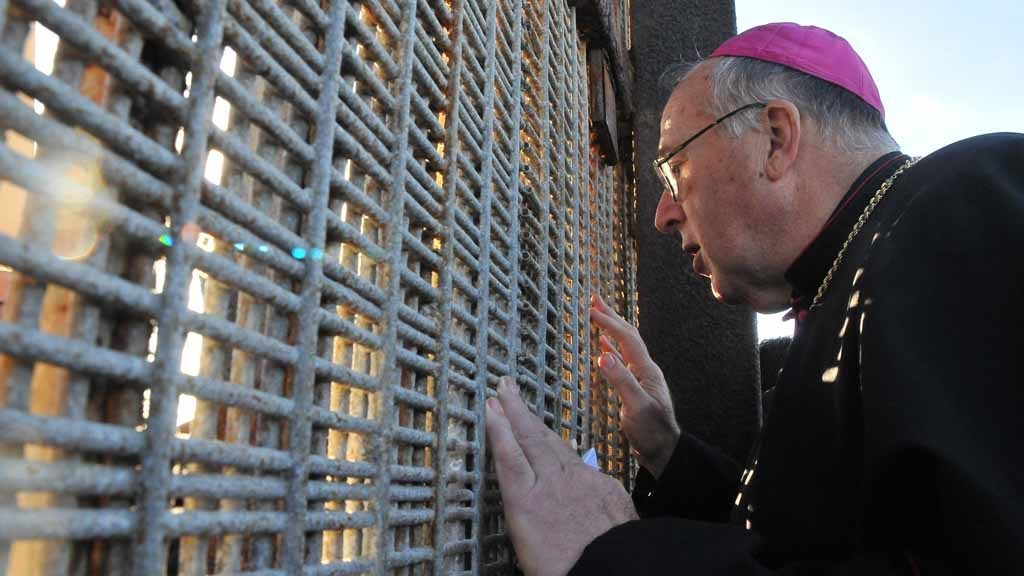In 1970, I took part in an early anti-abortion protest in Washington D.C. at George Washington University Hospital. It was intended to be a sit-in at the offices where hospital employees interviewed women seeking abortions. The hospital was violating the laws of the District of Columbia, which back then still prohibited abortion. But abortions were being performed at the hospital nonetheless.
Our purpose was simply to demand that the hospital comply with the laws of the District of Columbia. Protesters never got beyond the entrance to the office building and were hit with pepper spray to force them from the entrance. Several of us were arrested (I was not) for trying to prevent ourselves from being sprayed, another example of the victims being arrested while the perpetrators went free. The case against the protesters was extremely weak and eventually was dropped.
What was notable about this incident was the way the Catholic bishops responded at the time. Most took no notice at all, but the bishops who did respond were obviously embarrassed that Catholics would be involved in such disruptive behavior. It was one thing to resist abortion by words, but quite another to actually engage in actions that disrupted public order.
Since this was a peaceful protest, they were not criticizing violent attacks, but nonviolent actions that would shut down a public institution, even if that institution was engaging in taking the lives of the unborn. Not only did we get no financial help with fines and legal fees resulting from the arrests, but we were clearly designated the black sheep of the Catholic Church.
How things have changed. Now we have San Diego Bishop Robert McElroy advocating “disruptive” actions to accomplish his favored political goals. So far as I know, he has never suggested we should take disruptive action to end the slaughter of the unborn in places like Planned Parenthood, nor to check a government that supports this mass murder. But in his address to the U.S. regional gathering for the World Meeting of Popular Movements in California, this activist bishop said that with the election of President Trump, “Well now, we must all become disruptors.”

He then went on to give a series of misleading accusations against the new administration, which included the following, “We must disrupt those who would seek to send troops into our streets to deport the undocumented, to rip mothers and fathers from their families. . . .who portray refugees as enemies rather than our brothers and sisters in terrible need. . . .who train us to see Muslim men, women and children as forces of fear rather than as children of God. . . .who seek to rob our medical care, especially from the poor, who would take even food stamps and nutrition assistance from the mouths of children.”
These are the kinds of “fake” accusations that we have seen from leftist activists and their media supporters who quite literally want to overthrow a validly elected government.
Words often take their meanings from context, and the word “disrupt” in today’s political context means “bring down’ and “overthrow.” It’s a buzzword widely used by people like Michael Moore and other left-wing revolutionaries, Saul Alinsky types who want to see the present government overthrown. Bishop McElroy may argue that this is not his intention. But when he adopts the language of revolution, he cannot avoid the implication that he approves of such aims.
If we had used such language back in 1970, it would have been clear that we were implicit revolutionaries. And it would’ve been quite appropriate for the bishops to call us out and warn Catholics that overthrowing the government was not the position of the Church. I’m waiting for some such rebuff to Bishop McElroy, but I won’t hold my breath.
The Modesto meeting was co-sponsored by the Vatican’s Dicastery for Integral Human Development and the U.S. Bishops’ Conference. Indeed, the annual World Meeting of Popular Movements is the result of an initiative of Pope Francis himself according to their web site. But such movements, though well-intentioned and professing noble goals, have sometimes been turned into a movement that co-opts the Church.
For instance, Don Luigi Giussani, who had worked closely with the Italian movement Gioventù Studentesca for years, was faced with a problem in 1968. The majority of this student organization had taken what the Italians call a “volta alla sinistra” (“turn to the left”), and joined the Italian Student Movement, a Marxist group in Italian universities and schools. His solution was to lead the minority in a new undertaking, Communion and Liberation, which would be faithful to the Christian ideals and practices that he had set forth in his writings over his years.
The problem we face today is that we cannot replace the Church with a new movement. If Church leaders embrace this kind of politically driven radicalism, distorting the truth while calling for disrupting a legitimate government, we are in deep trouble.
Truth makes strict demands, and distorting the truth by distorting the facts is equivalent to lying. Politicians and the press do it all the time, but it cannot be tolerated in the Church, especially not among Church leaders. Trump may not be your ideal president, but it’s simply calumny to suggest that he is in favor of, or has a plan to “send troops into our streets to deport the undocumented, to rip mothers and fathers from their families. . . .portray refugees as enemies. . . .train us to see Muslim men, women and children as forces of fear rather than as children of God. . . .rob our medical care, especially from the poor. . . .take even food stamps and nutrition assistance from the mouths of children.”
This is raw, dishonest, political rhetoric – the most dangerous disruption of all, the suppression of truth for political ends, which can easily lead to violence, regardless of the intentions of those who use such language.















